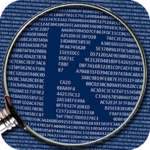 Kryptohash
Kryptohash[a rdfg:Graph;rdflib:storage [a rdflib:Store;rdfs:label 'IOMemory']].
@prefix altc: <http://minkiz.info/owl/cryptocurrency.owl#> .
@prefix atom: <http://www.w3.org/2005/Atom> .
@prefix cce: <http://purl.org/net/bel-epa/cce#> .
@prefix ccy: <http://purl.org/net/bel-epa/ccy#> .
@prefix dc: <http://purl.org/dc/elements/1.1/> .
@prefix doacc: <http://purl.org/net/bel-epa/doacc#> .
@prefix ev: <http://ebiquity.umbc.edu/ontology/event.owl#> .
@prefix foaf: <http://daml.umbc.edu/ontologies/cobra/0.4/foaf/> .
@prefix owl: <http://www.w3.org/2002/07/owl#> .
@prefix pam: <http://prismstandard.org/namespaces/pam/2.0/> .
@prefix pers: <http://ebiquity.umbc.edu/ontology/person.owl#> .
@prefix pub: <http://ebiquity.umbc.edu/ontology/publication.owl#> .
@prefix rdf: <http://www.w3.org/1999/02/22-rdf-syntax-ns#> .
@prefix rdfs: <http://www.w3.org/2000/01/rdf-schema#> .
@prefix skos: <http://www.w3.org/2004/02/skos/core#> .
@prefix tags: <http://www.holygoat.co.uk/owl/redwood/0.1/tags/> .
@prefix xml: <http://www.w3.org/XML/1998/namespace> .
@prefix xsd: <http://www.w3.org/2001/XMLSchema#> .
<http://purl.org/net/bel-epa/doacc#6a1179f1-3a44-42b9-a6a1-95570418c12c> a doacc:Cryptocurrency ;
dc:description "320-bits long hash: Bitcoin and most alternative cryptocurrencies use 256-bits long hashes. With Kryptohash, all the main hashes are 320-bits long. The hashing algorithm is the Keccak-F 1600 Sponge Function that has been selected by the NIST to be the new SHA-3 standard. The Keccak Rate selected for Kryptohash is 960 and the Keccak Capacity is 640. These parameters provides significantly higher collision and preimage resistance than the old SHA-256 algorithm., KSHAKE320: A brand new Proof-Of-Work algorithm (PoW) based on the Keccak but in a mode called Extendable-Output (a.k.a. SHAKE). SHAKE's variable output makes it ideal for a Proof-Of-Work algorithm, as it can easily be configured to require large amount of memory which increases the computing cost to those attempting to perform large-scale ASIC attacks. In the case of the KSHAKE320 used by Kryptohash, each hash calculation requires 64Kb of RAM and it can be easily enhanced in the future to require 128Kb, 256Kb, 512Kb, 1Mb, etc., Ed25519 Signatures: This is an Elliptic-Curve Cryptographic Algorithm that offers faster signature verification and better protection against side channel attacks than the ECDSA., Difficulty: The block difficulty is adjusted every 100 blocks using a PID algorithm. The block time is 180 seconds., 64-bits Time Stamps: In order to avoid the upcoming Unix Time apocalypse (Jan 2038), Kryptohash implements *today* time stamps fields with 64-bits in the blockchain., Region code: Kryptohash protocol includes a Region code field. Each Region consists in it's own separate blockchain, RPC/P2P port numbers and hopefully a different Market price. As of December 2014, only Region #0 exists. Other regions might be released in the future. , Block Reward & Fee structure: In order to protect the Kryptohash network today and in the future against the 50%+ hash power attacks, the protocol includes a reward & fee structure that provides financial incentives to individual honest miners which helps reduce the likelihood of the Economic dilemma known as “The Tragedy of the Commons”. The structure consists in the following:, Every Kryptohash Coin (KHC) transaction carries a fixed fee of 0.5% that is paid to the miner who solves the block. Minimum fee is 5 Kryptoha-toshis or 0.00005 KHC., Block reward (or subisidy) is paid to miners using the following schema:, Blocks: 0 to 99 -> A fixed subsidy of 50 KHCs., Blocks: 100 to 999 -> A fixed subsidy of 50 KHCs plus a random subsidy of 0 to 399 KHCs., Blocks: 1,000 to 9,999 -> A fixed subsidy of 50 KHCs plus a random subsidy of 0 to 199 KHCs., Blocks: 10,000 to 99,999 -> A fixed subsidy of 50 KHCs plus a random subsidy of 0 to 99 KHCs., Blocks: 100,000 to 124,999 -> A fixed subsidy of 50 KHCs plus a random subsidy of 0 to 49 KHCs., Blocks: 125,000+ -> A fixed subsidy of 50 KHCs., Just like with Bitcoin v0.9.3, there is a fee to discourage “dust” SPAM and a fee for transactions with high number of inputs and outputs. Finally, additional “voluntary” fees can be specified using the “paytxfee” parameter inside the kryptohash.conf file to increase the chance of getting your transaction included in generated blocks., Low pre-mine: Only 100,000 KHCs have been pre-mined in Block #1, ."@en ;
doacc:block-reward "50"^^xsd:string ;
doacc:block-time 180 ;
doacc:date-founded "2014-12-03"^^xsd:date ;
doacc:distribution-scheme doacc:Dc10c93fb-f7ec-40cd-a06e-7890686f6ef8 ;
doacc:image "kryptohashcoin_khc.png"^^xsd:string ;
doacc:incept "2014-12"^^xsd:string ;
doacc:maturation "100"^^xsd:string ;
doacc:pow doacc:D368e8e22-f7ef-4a58-9815-5a8a40181cbc ;
doacc:premine "100000"^^xsd:string ;
doacc:protection-scheme doacc:D451a49d8-c9e7-46e5-8b8d-bcbe16f75c24 ;
doacc:protocol doacc:Db8ade99f-11f1-476b-ae77-03c005c1bb66 ;
doacc:retarget-time "100 blocks"^^xsd:string ;
doacc:source "http://www.kryptohash.org"^^xsd:string ;
doacc:symbol "KHC"@en ;
doacc:total-coins "40000000"^^xsd:string ;
doacc:website <https://github.com/kryptohash/kryptohash> ;
skos:prefLabel "Kryptohash"@en .
+44-(0)1934-732723
VAT Reg: GB701276958
Contains semantic web technology, may also contain nuts.
NB: in development, structure and/or content may change without warning; uses RDFLib4.2.2-dev, Pyramid1.5dev & Python3.4.3+ sign in